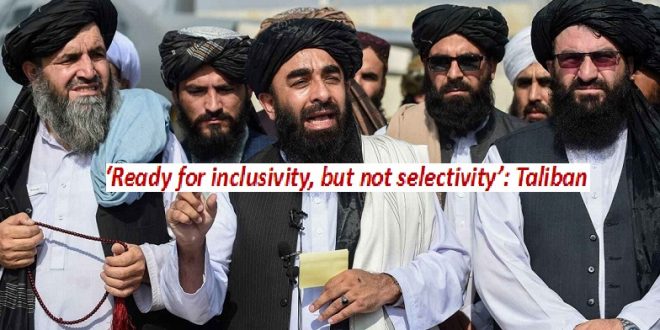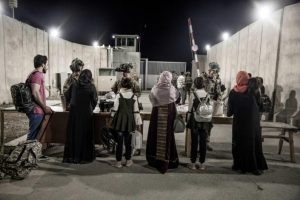10-10-2021
By SJA Jafri + Bureau Report + Agencies
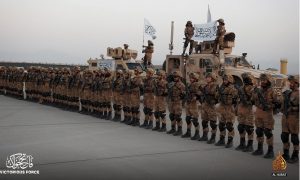 KABUL/ WASHINGTON/ ISLAMABAD: A U.S. delegation will meet with senior Taliban representatives in Doha on Saturday and Sunday in their first face-to-face meeting at a senior level since Washington pulled its troops from Afghanistan and the hardline group took over the country, two senior administration officials told Reuters.
KABUL/ WASHINGTON/ ISLAMABAD: A U.S. delegation will meet with senior Taliban representatives in Doha on Saturday and Sunday in their first face-to-face meeting at a senior level since Washington pulled its troops from Afghanistan and the hardline group took over the country, two senior administration officials told Reuters.
The high-level U.S. delegation will include officials from the State Department, USAID and the U.S. intelligence community, will press the Taliban to ensure continued safe passage for U.S. citizens and others out of Afghanistan and to release kidnapped U.S. citizen Mark Frerichs, the officials said.
Another top priority will be to hold the Taliban to its commitment that it will not allow Afghanistan to again become a hotbed for al Qaeda or other extremists while pressing the group to improve access for humanitarian aid as the country faces the prospect of a “really severe and probably impossible to prevent” economic contraction, U.S. officials said.
U.S. Special Representative Zalmay Khalilzad, who has for years spearheaded US dialogue with 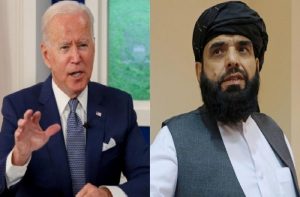 the Taliban and been a key figure in peace talks with the group, will not be part of the delegation.
the Taliban and been a key figure in peace talks with the group, will not be part of the delegation.
The U.S. team will include the State Department’s Deputy Special Representative Tom West as well as top USAID humanitarian official Sarah Charles. On The Taliban side, cabinet officials will be attending, officials said.
“This meeting is a continuation of the pragmatic engagements with the Taliban that we’ve had ongoing on matters of vital national interest,” said a senior administration official, speaking on the condition of anonymity.
“This meeting is not about granting recognition or conferring legitimacy. We remain clear that any legitimacy must be earned through the Taliban’s own actions. They need to establish a sustained track record,” the official said.
The United States’ two decades-long occupation of Afghanistan culminated in a hastily organized airlift in August which saw more than 124,000 civilians including Americans, Afghans and others being evacuated as the Taliban took over. But thousands of other U.S.-allied Afghans at risk of Taliban persecution were left behind.
Washington and other Western countries are grappling with difficult choices as a severe 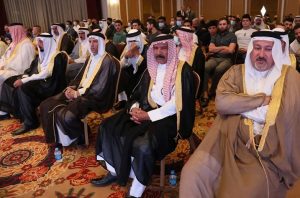 humanitarian crisis looms large over Afghanistan. They are trying to formulate how to engage with the Taliban without granting it the legitimacy it seeks while ensuring humanitarian aid flows into the country.
humanitarian crisis looms large over Afghanistan. They are trying to formulate how to engage with the Taliban without granting it the legitimacy it seeks while ensuring humanitarian aid flows into the country.
Many Afghans have started selling their possessions to pay for ever-scarcer food.
The departure of U.S.-led forces and many international donors robbed the country of grants that financed 75% of public spending, according to the World Bank.
While there was an improvement for humanitarian actors get access to some areas that they haven’t been in a decade, problems still persisted, the U.S. official said, adding that the U.S. delegation would press Taliban to improve.
“Right now, we are facing some real access issues….There are a lot of challenges in ensuring that female aid workers are provided unimpeded access to all areas,” the official said and added that Washington needed to see an improvement by the Taliban on this front “if we are to contemplate even more robust humanitarian assistance.”
While the Taliban has promised to be more inclusive than when it led the country from 1996 to 2001, the United States has repeatedly said it will judge the new Taliban government based on its deeds not its words.
The Taliban drew from its inner high echelons to fill top posts in Afghanistan’s new provisional government announced last month, including an associate of the Islamist militant group’s founder as premier and a wanted man on a U.S. terrorism list as interior minister. There were no outsiders and no women in the cabinet.
The European Union foreign policy chief said on Sunday its behavior up to now was “not very encouraging.”
“We will certainly press the Taliban to respect the rights of all Afghans including women and girls and to form an inclusive government with broad support,” the U.S. official said.
He added that there were discrepancies between the Taliban’s promises of continued safe passage and implementation.
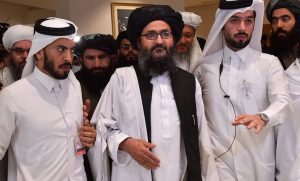 “As a practical matter, their implementation of their commitments has been uneven. It is true that sometimes we receive assurances from certain levels but then follow through on those assurances has truly been uneven,” the official said.
“As a practical matter, their implementation of their commitments has been uneven. It is true that sometimes we receive assurances from certain levels but then follow through on those assurances has truly been uneven,” the official said.
The United States has directly facilitated the departure of 105 U.S. citizens and 95 lawful permanent residents out of Afghanistan since Aug. 31, when U.S. withdrawal was completed, State Department spokesperson Ned Price said on Thursday.
He declined to provide a precise figure for those remaining, but said the agency was in contact with “dozens of Americans in Afghanistan who wish to leave” but that the number was dynamic and constantly changing.
Meanwhile, the Taliban’s “Islamic emirate” is “ready for inclusivity but not selectivity”, the group’s senior leader has told media, in response to the Western pressure for an inclusive Afghan government.
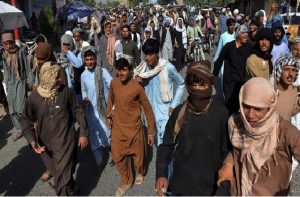 The Taliban says members of ethnic minorities have been represented in its Cabinet announced last month and that women would be added later.
The Taliban says members of ethnic minorities have been represented in its Cabinet announced last month and that women would be added later.
The Taliban has been cold to US suggestion to include “old guard” in the “inclusive” government, sources told media.
“The international community must respect the wishes of the Afghan people,” Suhail Shaheen, ambassador-designate to the UN, told media in an exclusive interview.
The Afghan group, which captured power on August 15, has sought international recognition of its “Islamic Emirate in Afghanistan” (IEA), but the West has said that recognition would be linked to the treatment of women and minorities.
The continued closure of high schools for girls and killing of Hazara people has drawn criticism from rights groups, and caused concerns among the Western nations.
Taliban-US talks
Shaheen’s comments came as a Taliban delegation led by acting Afghan Foreign Minister Amir 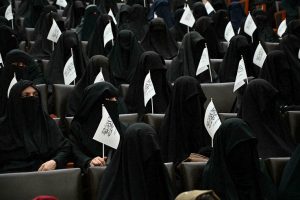 Khan Muttaqi arrived in Doha to hold talks with Qatari officials and representatives of a number of other countries, including the United States.
Khan Muttaqi arrived in Doha to hold talks with Qatari officials and representatives of a number of other countries, including the United States.
The US officials, including intelligence and Department of State, will hold their first face-to-face meeting with Taliban officials since American troops pulled out from Afghanistan on August 30.
Security agencies from regional and international powers are also expected to hold talks with the Taliban delegation, which includes spy chief Mullah Abdul Haq Wasiq, Minister of Information and Culture Mullah Khairullah Khairkhwa and Sheikh Shahabuddin Delawar.
Maulvi Dilawar is one of the founding members of the Taliban negotiation team based in Doha. He was sent by the group’s founding Chief Mullah Mohammed Omar to establish the Doha political office.
The two-day meetings will kick off on Saturday.
Shaheen, the senior Taliban leader, on Thursday held meetings with ambassadors and representatives of several countries, including the United Kingdom and the US, in Doha.
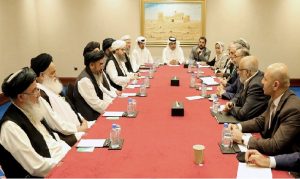 Taliban has insisted the US should honor the 2020 agreement it signed in Doha and remove sanctions and unfreeze Afghan central bank assets worth billions of dollars. Many Taliban leaders, including current ministers, are still blacklisted by the UN and the US.
Taliban has insisted the US should honor the 2020 agreement it signed in Doha and remove sanctions and unfreeze Afghan central bank assets worth billions of dollars. Many Taliban leaders, including current ministers, are still blacklisted by the UN and the US.
Afghanistan’s central bank’s assets worth more than $9bn have been frozen by the US while international financial institutions such as IMF have suspended Afghanistan’s access to its funds triggering a liquidity crunch.
Concessions on women’s rights
The US wants leaders from the previous government to be made part of the “inclusive” government, concessions on women’s rights and access to target armed groups such as ISIL affiliate, the Islamic State in Khorasan Province-ISKP (ISIS-K), sources told media.
The ISKP group on Friday claimed an attack on a Shia Hazara mosque that killed dozens – the worst attack since the Taliban came to power in August. The group has emerged as the biggest security threat to the Taliban.
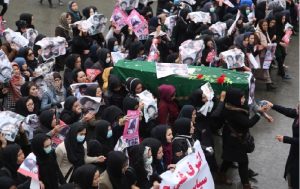 Earlier, Mutlaq al-Qahtani, Qatar’s special envoy to Afghanistan, called on the international community to “engage with the Taliban”.
Earlier, Mutlaq al-Qahtani, Qatar’s special envoy to Afghanistan, called on the international community to “engage with the Taliban”.
“You can disagree with them but isolationist policies cannot bring solutions,” he had told PMI late last month.
“The international community must not repeat the mistakes of the past. Pariah states tend to swing towards extremism and violence,” he said referring to the dangers of Afghanistan turning into a pariah state.
“With active engagement to improve lives of millions of Afghan people, the international community can prevent Afghanistan from becoming one.”
Meanwhile, Afghanistan has been staring at a humanitarian catastrophe, with only a third of the funds sought for the country by the UN has been disbursed.
 Pressmediaofindia
Pressmediaofindia
